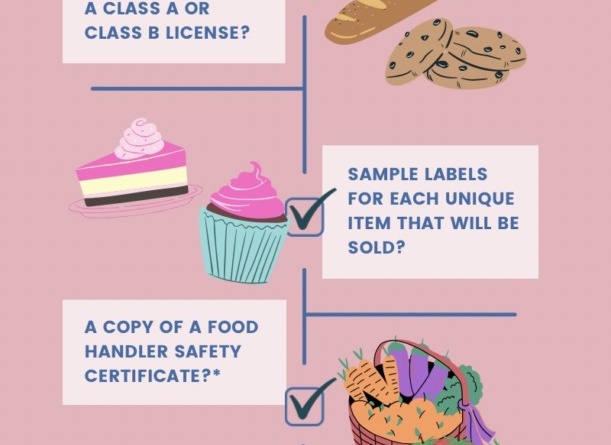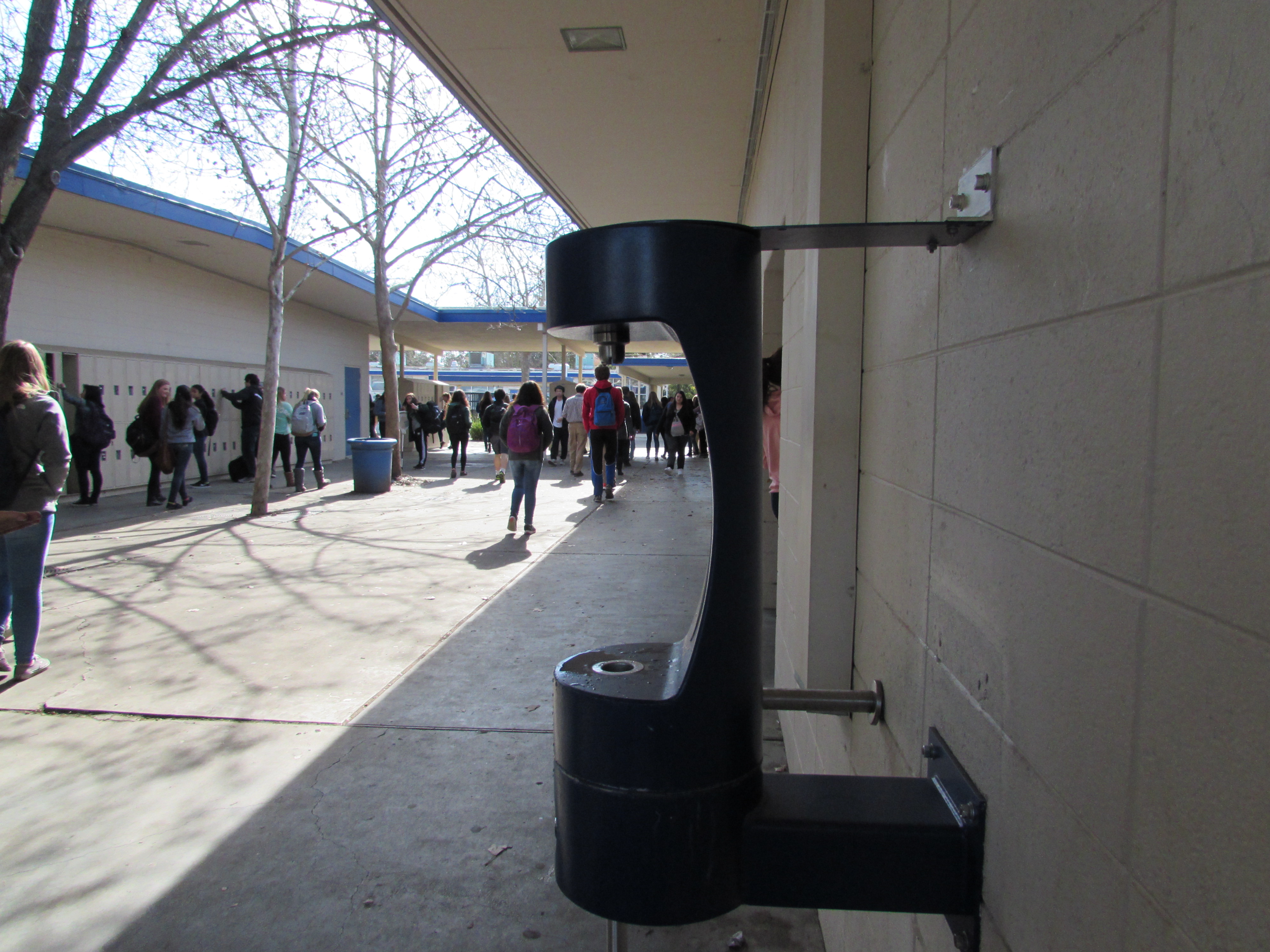OPINION: Starting a cottage food operation has too many obstacles
INFOGRAPHIC: There are multiple steps in order to start a cottage food operation. (Courtesy of Xochitl Armien)
By Grace Kishiyama,
BlueDevilHUB.com Staff–
Assembly Bill (AB) 1616, now known as the California Homemade Food Act, was signed into law by former California governor Jerry Brown on Sept. 12, 2012, effective Jan. 1, 2013.
According to the California Department of Public Health (CDPH), “the bill allows individuals to prepare and/or package certain non-potentially hazardous foods in private-home kitchens referred to as “cottage food operations” (CFOs).” The “non-potentially hazardous foods” including baked goods without cream, or meat fillings, candy and nuts, etc. The law requires all CFOs to operate within certain regulations set by the California Health and Safety Code.
According to the California Department of Public Health (CDPH), Assembly Bill (AB) 1616, now known as the California Homemade Food Act, “allows individuals to prepare and/or package certain non-potentially hazardous foods in private-home kitchens referred to as ‘cottage food operations’ (CFOs).” The “non-potentially hazardous foods” including baked goods without cream, custards, or meat fillings, candy and nuts, etc.
Starting a CFO is harder than starting a handmade clothing business. There are labeling requirements, specific foods that can be sold, business applications, and more. Along with following local and state guidelines, starting a CFO may pose a number of other challenges.
Applying for a Class A CFO business license in Yolo County alone costs $333. A Class A business license only allows sellers to sell food directly to consumers from their homes or at a community event. In addition to an application fee, potential CFO sellers must submit a copy of their Food Handlers Safety Certificate and sample labels for each individual item they will be selling.
Bran & Ash Bakehouse, was started by Casey Hardi and Zoe Mitchell. What began as a small two-person CFO in Davis has grown into a bigger bakery and has relocated to Hood River, Oregon.
Mitchell and Hardi faced a number of obstacles when starting their business, the first being the application process.
“Starting our business in Davis was a real hurdle. Figuring out the complicated permitting and licensing process for both a cottage food operation and a business was difficult and there were not many complete resources online,” the two business owners said.
Upon overcoming this obstacle, Hardi and Mitchell were faced with another one.
“The biggest challenge for us was finding our own place in the community. The bakery community in Davis was competitive and not very welcoming. We found it very difficult to find venues to sell and ways to reach customers,” Hardi and Mitchell said.
They were eventually able to start their own delivery program.
“We would tell someone interested in starting their own business to find a good resource for the permitting and licensing process. It can be difficult to navigate but with some help the process will become much more clear. We also would implore anyone to figure out a good schedule and space for all their equipment,” they said.
Tim Richards, a prior Davis resident, was the first person in Yolo County to have a certified cottage food operation. He operates a business called Philosopher Foods, which sells nut butters and he has since expanded his business in Santa Cruz.
“Our stone-ground coconut butter, sprouted almond butter, and chocolate versions of both are made in small batches in Santa Cruz, California. Using stone grinding […] we are re-defining nut butter with our unique flavors and textures,” Richards said.
Starting a CFO is the “cheapest way for anyone to get going” in the food business, according to Richards.
However, it cost him $150 dollars to just get his business up and running — money that some individuals may not have to pursue starting a CFO. Not to mention the absurdly high application fees that must be paid in order to become a certified CFO.
As a whole, if a CFO is successful, it may be expensive to keep up with its growth — especially without prior business experience.
“It’s easy to make and sell great food that you love on a small scale out of your kitchen, but to scale it into a larger brand with [a] bigger impact is very challenging and expensive. A food business is still a business, so be prepared to run a business as you grow,” Richards said.
However, the passing of Amendment AB 1144 will now allow CFOs to ship their products anywhere in the state — which will make it easier for CFOs to help grow their business.




